A Marine participates in an integrated training exercise at Marine Corps Air Ground Combat Center, Twentynine Palms, Calif., April 12, 2021. The exercise provides a challenging, realistic training environment to prepare troops for combat.
Providing up-to-date information, news and original content on American Military issues.
A Marine participates in an integrated training exercise at Marine Corps Air Ground Combat Center, Twentynine Palms, Calif., April 12, 2021. The exercise provides a challenging, realistic training environment to prepare troops for combat.
Navy Petty Officer 2nd Class Logann Parker conducts a handling demonstration with military working dog Astra at Naval Support Activity Souda Bay, Greece, April 12, 2021.
The Theodore Roosevelt Carrier Strike Group transits in formation with the Makin Island Amphibious Ready Group in the South China Sea, April 9, 2021.
Marine Corps Cpl. Tyler Rautheaux simulates providing security during training in Okinawa, Japan, April 7, 2021.
Marine Corps recruit Wade G. Huddleston participates in martial arts training at Marine Corps Recruit Depot San Diego, April 12, 2021.
Army Cadet Master Sgt. Jhaniyah Wynn performs a pushup during a training corps cadet leadership challenge at Camp Zama, April 6, 2021.
Soldiers assigned to the 2nd Brigade Combat Team, 101st Airborne Division, and their partners from the Ohio National Guard reach a milestone; administering their one hundred thousandth dose of the COVID-19 vaccine at the state-run, federally-supported Wolstein Community Vaccination Center in Cleveland,, April 2, 2021. U.S. Northern Command, through Army North, remains committed to providing continued, flexible Defense Department support to the Federal Emergency Management Agency as part of the whole-of-government response to COVID-19.
Army Spc. Logan Kilmon, assigned to the Kentucky Army National Guard, directs traffic at Kentucky’s largest drive-through COVID-19 vaccination clinic at Cardinal Stadium in Louisville, Ky., April 12, 2021. More than 30 Kentucky National Guard soldiers and airmen are providing direct support to the clinic, which can vaccinate up to 4,000 people a day.
Navy Seaman Matthew Tuten, left, and Navy Seaman Kenecha Campbell, right, assigned to Naval Medical Center Portsmouth, Va., refill COVID-19 vaccine supplies at their assigned stations at the Hynes Convention Center COVID-19 Community Vaccine Center in Boston, April 2, 2021. Sailors from across the country are deployed in support of Defense Department vaccine response efforts. U.S. Northern Command, through Army North, remains committed to providing continued, flexible DOD support to the Federal Emergency Management Agency as part of the whole-of-government response to COVID-19.
Army Sgt. 1st Class Chris Acevedo conducts a tandem jump with Ryan Alam, a teen fighting a rare neurodegenerative disease, over Potomac, Md., April 12, 2021.
Secretary of Defense Lloyd J. Austin III stands at attention as two U.S. Marines salute after Austin placed a wreath at Yad Vashem in Jerusalem, April 12, 2021. Also called the World Holocaust Remembrance Center, Yad Vashem is dedicated to remembering the six million Jews killed in the Holocaust and working to ensure it can never happen again.
April 13, 2021 | BY David Vergun , DOD News
Lawrence "Larry" Eugene Doby was the second Black baseball player to break the color barrier when he signed with the Cleveland Indians in July 1947, three months after Jackie Robinson made history by signing with the Brooklyn Dodgers.

Doby made history as the first baseball player to go from the Negro Leagues directly into Major League Baseball.
From 1942 to 1943, Doby played for the all-Black Newark Eagles. At the time, no Black players were selected for Major League Baseball teams.
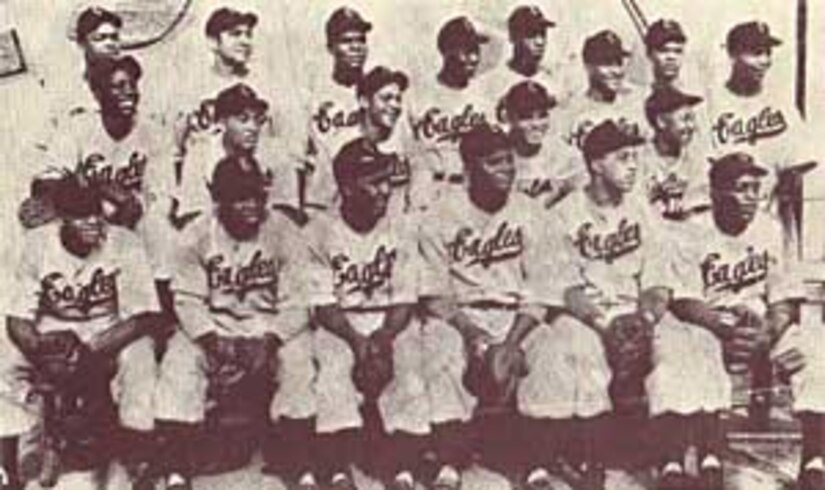
From 1943 through 1946, Doby served in the Navy. He was stationed at Great Lakes Naval Training School in Illinois, then Treasure Island Naval Base in San Francisco Bay, California. He also was assigned to Navy units in Ogden, Utah, and San Diego.
In 1945, he was stationed on Ulithi, a volcanic atoll in the Caroline Islands between Guam and the Philippines. The island served as a major staging area for the Navy that year during its final push to secure the Philippines and begin the invasion of Japan.

Serving in the military had been somewhat of a family tradition, since Doby's father served in World War I.
In 1946, Doby briefly played for the San Juan Senators in Puerto Rico before rejoining the Eagles that year.
On July 5, 1947, Doby began playing for the MLB's Cleveland Indians. Some of his new teammates refused to shake his hand when he was introduced, but second baseman Joe Gordon befriended Doby.
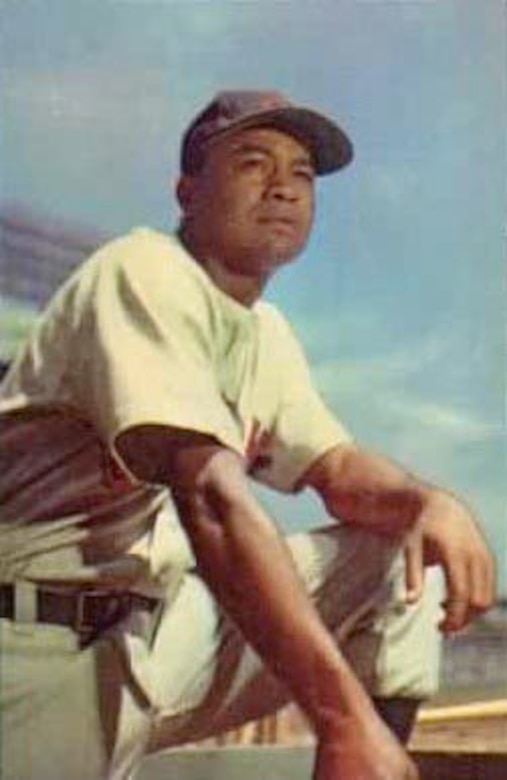
Initially, Doby had police protection to shield him from fans who were angry that a Black player was on the team.
Indians owner Bill Veeck, who signed Doby, had originally proposed integrating baseball in 1942, but he was rebuffed by MLB Commissioner Kenesaw Mountain Landis.
Doby, a center fielder, continued playing for the Indians until 1955. From 1956 to 1957, he signed with the Chicago White Sox, but he returned to the Indians in 1958. The following year, he joined the Detroit Tigers; later that year he rejoined the White Sox.
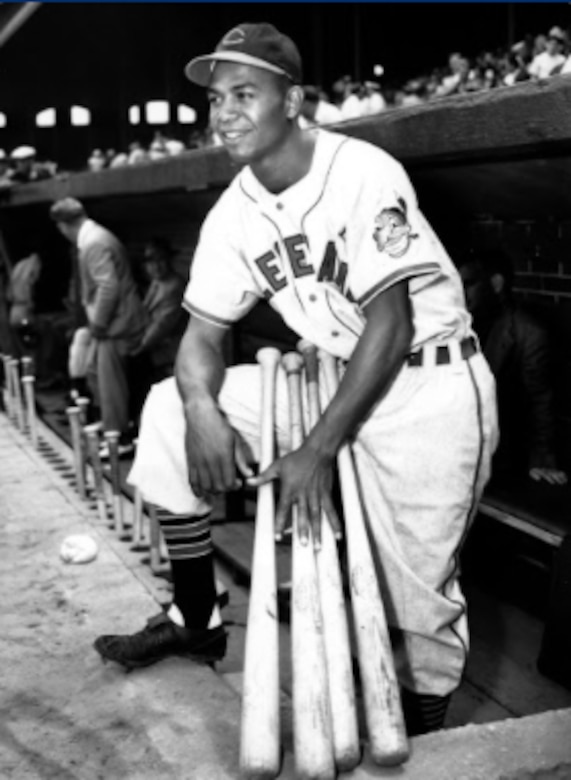
Despite moving around a lot, Doby amassed an enviable record: seven-time All-Star from 1949 to 1955; World Series champion in 1948; two-time American League home run leader in 1952 and 1954; and the American League's runs batted in leader in 1954.
Following his career as a baseball player in the U.S., Doby played professional baseball in Japan for the Chunichi Dragons team in 1962.
In 1978, he became the manager of the White Sox for one season.
Doby was named director of communications for the National Basketball Association's New Jersey Nets from 1980 to 1989.
In 1998, Doby was elected into the National Baseball Hall of Fame. He died in 2003 at the age of 79.

"This planned increase in U.S. personnel underscores our commitment to Germany and the entire NATO alliance," Austin said in his remarks to Germany's Ministry of Defense.
The increase reverses the policy of the previous administration, which looked to drastically reduce the number of U.S. forces based in Germany. President Joe Biden announced a policy to freeze that process, which included moving the headquarters for the Stuttgart-based U.S. European Command and U.S. Africa Command. The president ordered a global posture review to determine how to best station U.S. forces around the world.
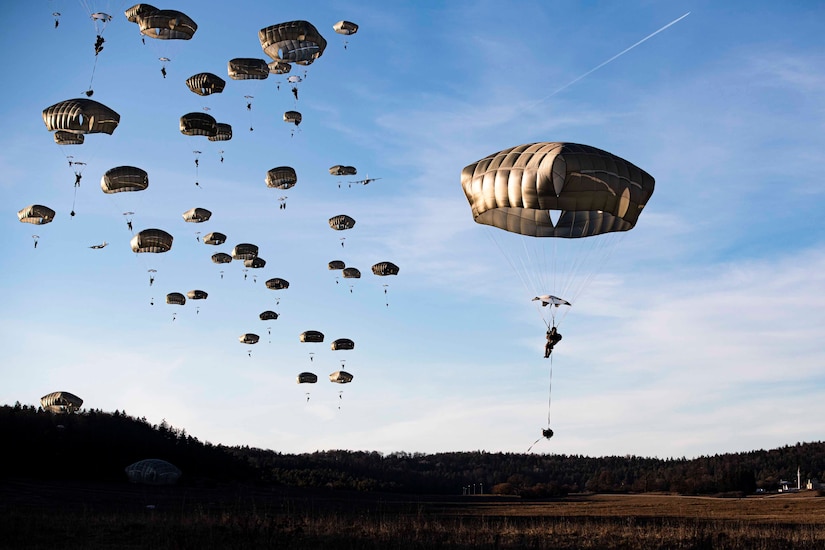
"It is great news that not only has the withdrawal of troops...from Germany been halted, but, quite the contrary; we will be able to welcome an additional 500 U.S. troops," Kramp-Karrenbauer said. "This is a very strong signal of our partnership and friendship."
Russia's actions in Georgia, its illegal annexation of Crimea from Ukraine, the continued harassment of Ukraine and other bordering nations, its military build-up, and its increasing use of cyberattacks are concerns in Europe. Germany is no exception; as the economic powerhouse of the continent, Germany is key to responding to these provocations.
"Germany is one of our staunchest allies, and our relationship is built on shared values of freedom, democracy, human rights, and the rule of law," Austin said. "Today, those principles are increasingly under duress. Amid shifting global dynamics and a challenging security environment, Germany will continue to be an important security and economic partner for the United States in the years ahead."
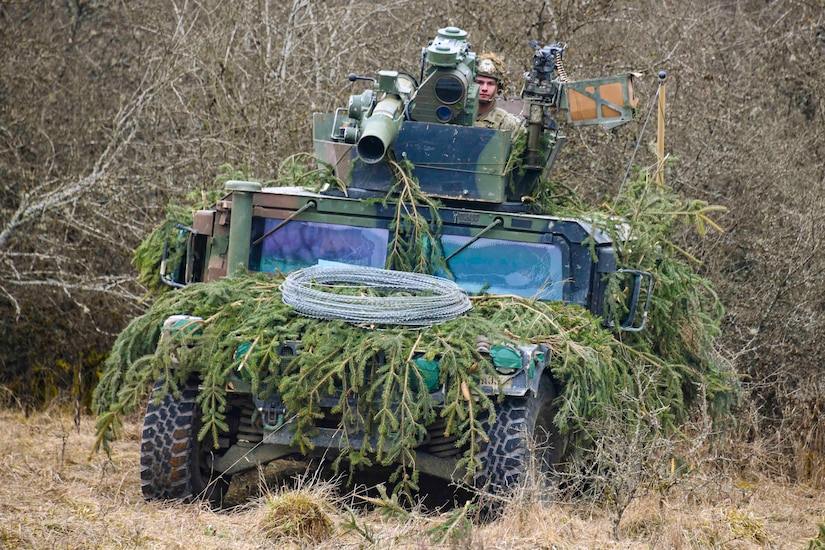
The secretary's visit to Germany is an indication of the value the Biden-Harris administration places on the relationship, officials traveling with the secretary said. It is part and parcel of the administration's effort to revitalize the series of American alliances worldwide. NATO is the crown jewel of the alliance system.
"Strengthening our relationship with Germany is a top priority for the Biden-Harris administration," Austin said. "Underscoring our strong commitment to allies and partners is at the forefront of my agenda, this includes advancing our transatlantic partnership, and increasing cooperation with our NATO allies," he said.
The 500 new U.S. troops will augment existing capabilities, help in the space and cyber domains, and provide more electronic warfare capabilities in Europe. They will "greatly improve our ability to surge forces at a moment’s notice to defend our allies," he said.
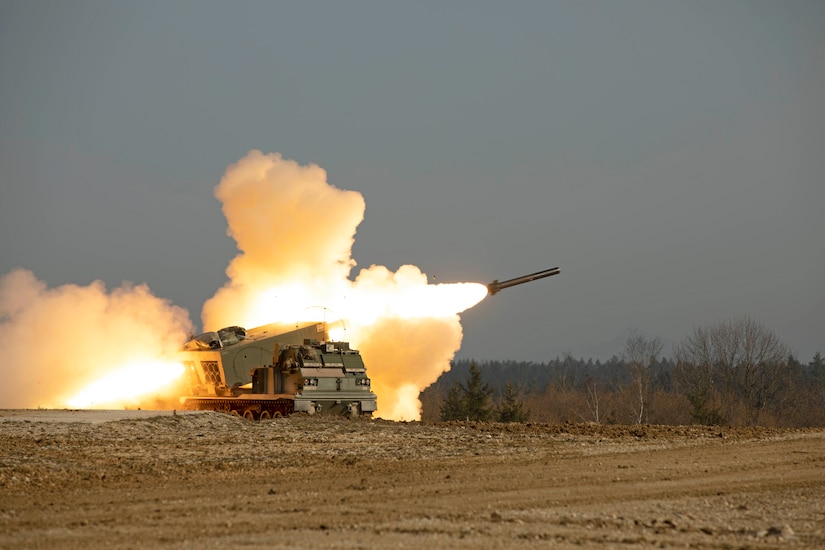
Austin briefed Kramp-Karrenbauer on the global U.S. force posture review, and the two also discussed Afghanistan. The German minister reiterated that NATO went into Afghanistan together and will leave together. The two also discussed areas where the United States and Germany can strengthen cooperation on global challenges, such as the COVID-19 pandemic and combating the malign influence of their shared strategic rivals.
Kramp-Karrenbauer said Germany will send a frigate to the Indo-Pacific that also champions freedom of navigation.
Germany is the first European nation Austin is visiting in his current job. "The visit was important to our country because as you heard President Biden say very early on that … we treasure our alliances," he said. "That's how we operate, and we always operate better as a part of a team, and NATO is a great team."